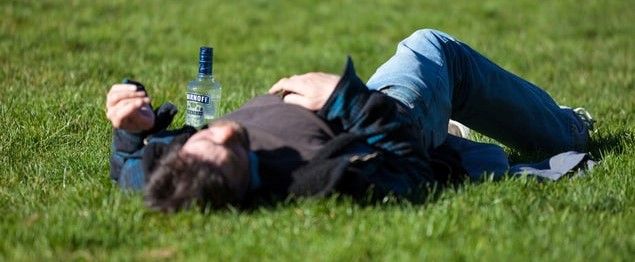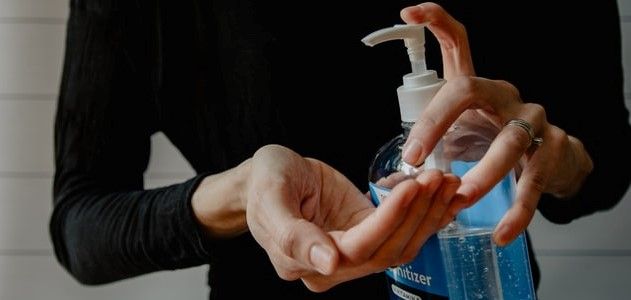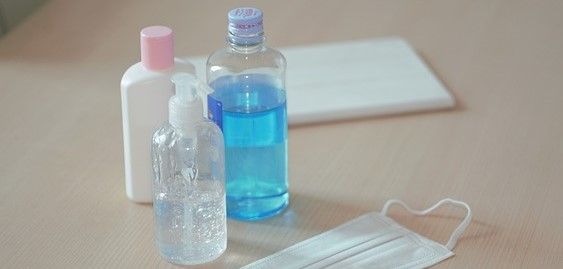Crazy as it sounds, every year dozens of people die from drinking hand sanitiser. Many more fall seriously ill, including going blind or having long-term liver damage from ingesting a product that was never meant to be drunk.
Fortunately, for most people, cases of poisoning from hand sanitiser typically occur when people have intentionally decided to drink it. Most are alcoholics either desperate for alcohol whatever the risk or are too drunk to realise the life-threatening substance they are consuming.
Unfortunately, some are teens who are too young to buy alcoholic drinks legally and are unaware of the dangers they face in getting a cheap high.

How many people drink hand sanitiser on purpose is unknown as data on the issue is scarce. However, a 2012 study which, “examined trends in hand sanitizer incidents [in America] from 2005 through 2009 reported an increase in the number of youngsters and adults who said they deliberately drank hand sanitizer. The number of children ages 6 to 19 who said they had deliberately swallowed hand sanitizer more than tripled, to about 350 in 2009, up from just over 100 in 2005. Meanwhile, the number of adults over 20 who said they deliberately drank hand sanitizer increased to just over 200 in 2009, up from about 60 in 2005.”
Given how much more wide-spread hand sanitiser use is since the pandemic began, it is likely that the number of cases of people drinking hand sanitiser has risen considerably. One report found that at the start of the pandemic, there was a 70% rise in hospital cases from hand sanitiser poisoning.
The chance of hand sanitiser poisoning among very small children is most likely if the child thinks they are drinking lemonade or water. However, there are still risks attached to using hand sanitiser correctly on toddlers.
“Even just putting their hands in their mouths after using hand sanitizer could give them alcohol poisoning if their hands are still a little bit wet from the sanitizer,” says Dr Patricia Garcia, a paediatrician at Connecticut Children’s Medical Center.

“For babies and toddlers, it can be difficult to make sure the sanitizer on their hands is fully dry,” explains Dr Gina Posner, a paediatrician at Memorial Care Orange Coast Medical Center in California. “They could then put their hands in their mouth and become sick.”
For this reason, child healthcare authorities recommend strict supervision of small children when using hand sanitiser and advise against letting children or babies play with hand sanitiser bottles. Although poison experts stress that a few drops or a simple taste of hand sanitiser is unlikely to make even a very small child or baby sick.

Other cases of children consuming hand sanitiser are more bizarre, such as the case of twelve children in India who were mistakenly given drops of disinfectant by healthcare workers instead of the polio vaccine.
However, for those of us who think that we would never make such a dangerous and silly mistake as to drink hand sanitiser, take a look at the video on this link. It shows an Indian government official awaiting the start of a meeting on the regional budget who accidentally took a swig of hand sanitiser from an unmarked bottle on the table.

Equally curious, is the video on this link, which shows the case of a man in the UK who accidentally used a drinks machine to apply product on his hands thinking it was a hand sanitiser dispenser.
While funny to see, it again shows how easy a sticky or potentially fatal mistake can be made.
So, what should you do if you or someone else accidentally drinks hand sanitiser?
Specialists in poison treatment note that there are two problems from consuming hand sanitiser.
“The first is that it can lower blood sugar [levels],” explains Rose Ann Gould Soloway, a clinical toxicologist. “In extreme, untreated situations, that can lead to coma and seizures. That's why the first treatment instruction after a child drinks alcohol, from any source, is to give something sweet to drink. The second problem is that it can make kids drunk. That doesn't just mean woozy; it means slow heart rate and breathing.”
If this happens, it is best to call an emergency health centre immediately. They will calculate how much alcohol has been consumed in proportion to the child’s size and if needed recommend the child be taken to hospital for monitoring or treatment.

More significantly, Soloway notes the dangers of hand sanitisers that contain methanol.
“Even a sip of methanol-tainted hand sanitizer can cause poisoning in a small child,” she says. “Remember, the products that are contaminated with methanol are much more dangerous than those made with approved hand sanitizer ingredients.”
For this reason, it is recommended to only buy hand sanitiser from trusted suppliers. It is also advisable to check the labels to ensure that your hand sanitiser products do not contain methanol while still containing enough alcohol (more than 70%) to kill coronavirus.
AG PROTECT, who sponsor this website, is an established supplier of hand sanitiser products, with a wide range of disinfecting sprays and hand gels all of which meet EU safety standards.
For high-quality hand sanitiser gels, sprays, and disinfecting wipes, visit: AG PROTECT.
Photo credit: Kelly Sikkema on Unsplash, thom masat, Kelly Sikkema, DailyMail, Kelly Sikkema, & นิธิ วีระสันติ from Pixabay